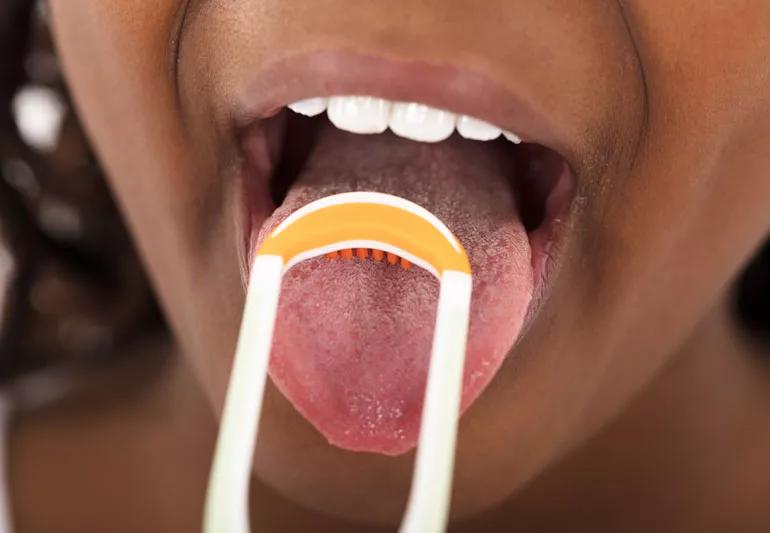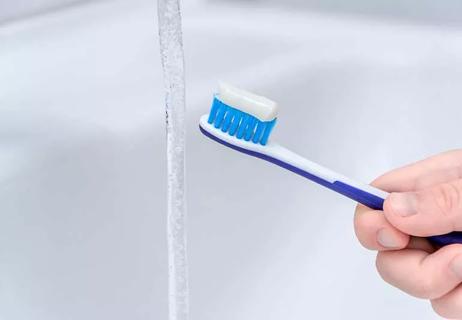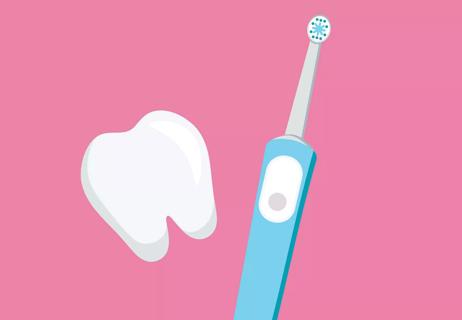Say ahhh and add this step to your toothbrushing routine

Even if you’re an oral hygiene all-star who brushes your teeth twice a day, flosses regularly and dutifully visits your dentist every six months, you may still be missing one step that could help keep your mouth fresh and healthy.
Advertisement
Cleveland Clinic is a non-profit academic medical center. Advertising on our site helps support our mission. We do not endorse non-Cleveland Clinic products or services. Policy
Have you thought about tending to your tongue – that fleshy collection of muscles that helps you speak, chew and swallow? It’s covered in little bumps called papillae that allow you to taste and feel textures in your mouth.
“But your tongue can also harbor bacteria,” dental hygienist Tenika Patterson, RDH, explains.
While most of those bacteria are the “good kind” that foster a healthy environment in your mouth, other kinds can cause bad breath, tooth decay and gum infections.
So, cleaning your tongue is important to keep that bad bacteria, as well as food debris and dead cells that may accumulate there, from causing trouble.
Brushing your tongue gently from back to front a few times with a toothbrush and toothpaste is an easy first step, since you’re already in there brushing your teeth twice a day anyway.
“But tongue scraping can do a better job at removing that plaque and bacteria off the tongue’s surface,” Patterson advises.
“Brushing is OK to do, but think about it this way — if your carpet is dirty and you scrub it, the dirt’s going to get embedded down in there,” she explains. “But if you scrape it, it’s going to come right off the surface.”
Indeed, studies suggest that tongue scraping can remove bacteria and improve bad breath more than brushing.
Advertisement
Tongue scraping devices made from plastic, copper or stainless steel are available at most drug stores and generally cost under $10.
Although it may not be top-of-mind, taking care of your tongue is important for overall oral health. Some of the benefits of tongue scraping are:
Here’s how to add tongue scraping to your routine in the morning and at night.
Brush your teeth, floss and rinse like you normally would. Then, stick your tongue out and apply light pressure to run the scraper across the entire surface of your tongue once or twice, starting all the way at the back of the tongue and scraping toward the front. It shouldn’t hurt or do any damage to your tongue. If it does, you’re pressing too hard on the scraper, so use less pressure.
Rinse the scraper in warm water after each pass, and finish by rinsing it again and swishing your mouth out with water.
It’s a quick and simple last step to add to your oral hygiene routine, but it can help leave your mouth feeling squeaky clean. If your tongue gives off any visual clues that it’s not healthy — like white, black or red discoloration, or sores or pain that persist for more than two weeks – make an appointment to visit and consult with your dentist.
Advertisement
Learn more about our editorial process.
Advertisement

You might have a sensitive gag reflex — but gagging while brushing can also be a result of certain medical conditions

An old, worn toothbrush is a hazard to your teeth and gums and a breeding ground for germs and bacteria — replace it every three to four months at least

Done correctly, daily flossing can help keep your teeth and gums healthy

Bloody gums after flossing usually signal a buildup of plaque, tartar and bacteria

A variety of products can be effective at removing stains on teeth

Despite unfounded theories, fluoride has the power to make your teeth stronger

Studies show they do a better job than manual brushes at removing plaque and debris

This tool is an add-on to your regular brushing and flossing habits, not a replacement for them

Wearing a scarf, adjusting your outdoor activities and following your asthma treatment plan can help limit breathing problems

Your diet in the weeks, days and hours ahead of your race can power you to the finish line

When someone guilt trips you, they’re using emotionally manipulative behavior to try to get you to act a certain way